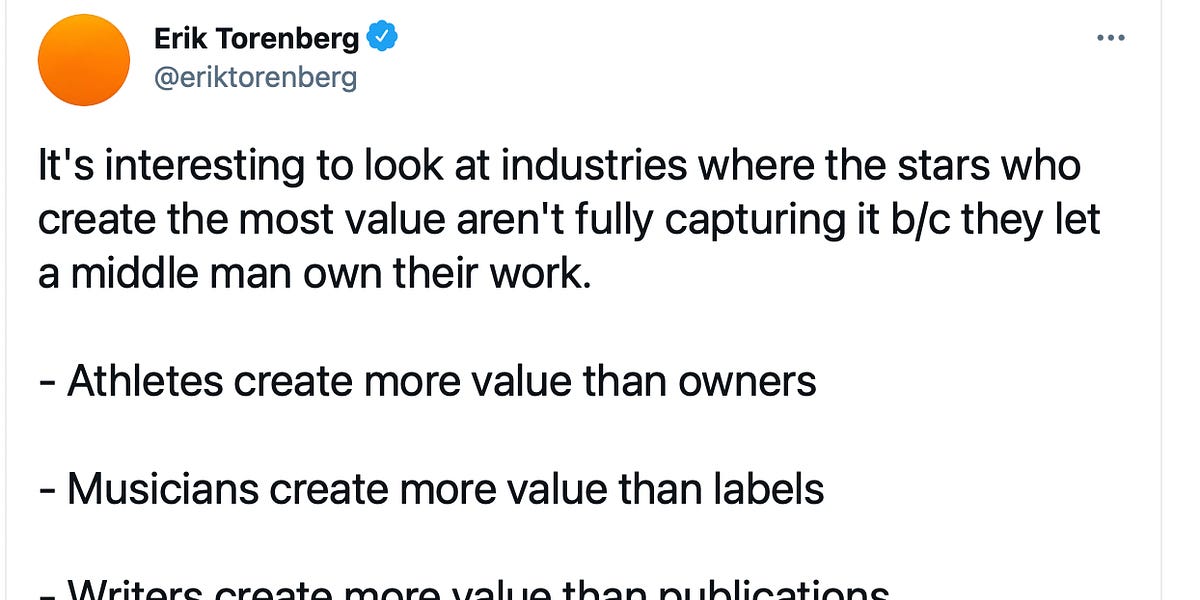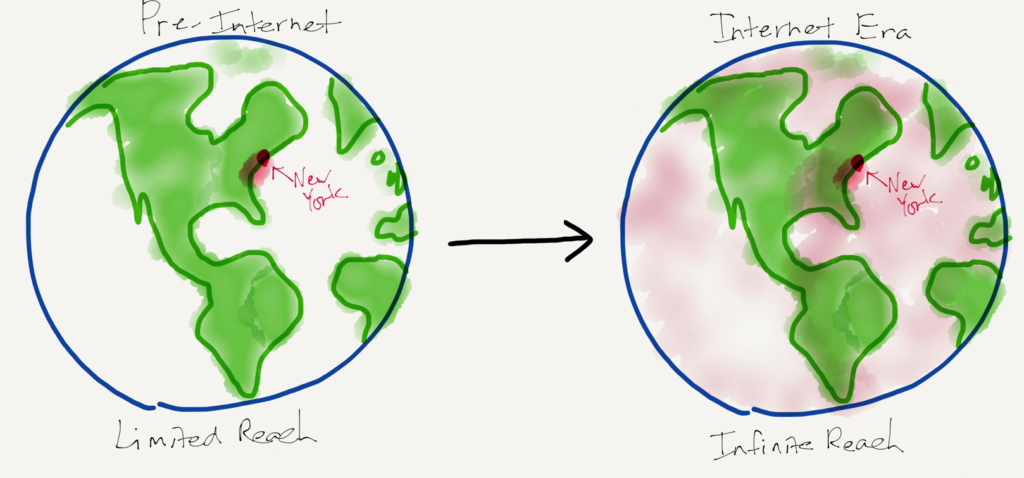This is the Aggregator’s advantage: particularly when it comes to media, whether it be print, video, or audio, suppliers are often motivated to simply reach the most people and make a living doing so. It is a fundamentally short-term outlook that is entirely understandable and defensible. That, though, leaves the Aggregator with an arbitrage advant... See more




